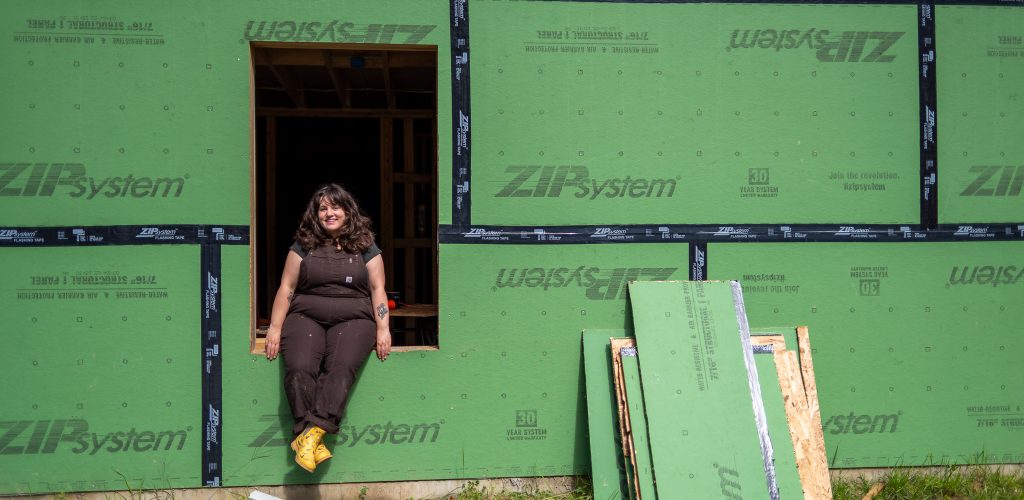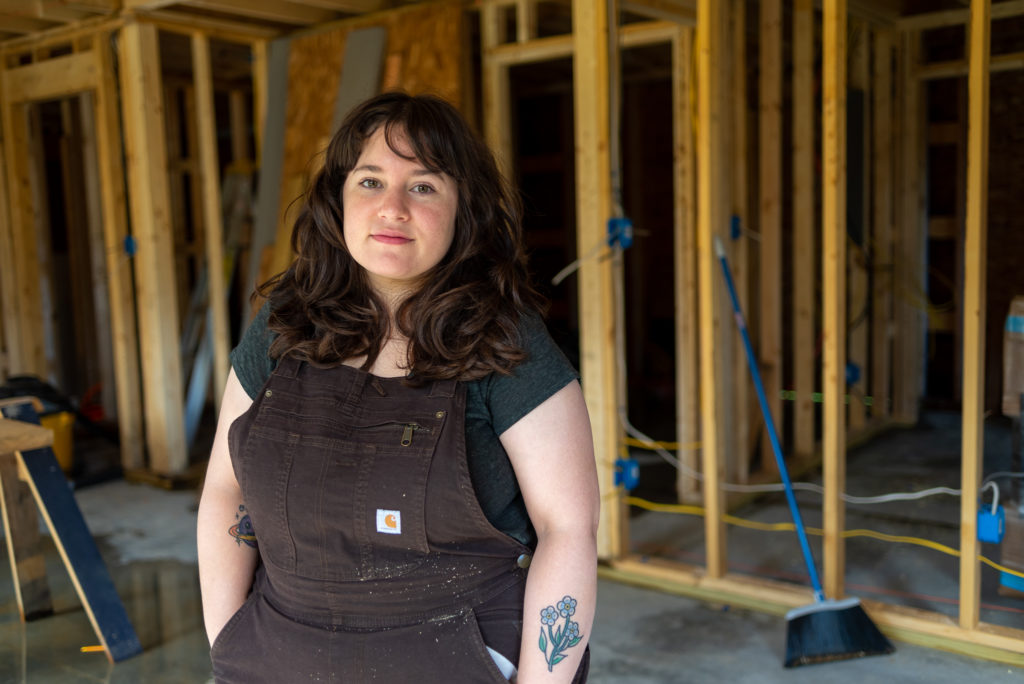Kate shared her story as part of MECEP’s State of Working Maine 2022 report. Click here to view the full report, as well as other workers’ stories.
Kate Hunter worked in food service in breweries, pubs, and restaurants for 12 years, where it was her primary source of income. She lost her job in a Portland restaurant when the COVID-19 pandemic hit and did not return when service resumed. Kate relocated to the Skowhegan area and now works for a life-long learning platform that is a program of the Maine State Library system.
“Waiting tables can be totally unpredictable. I could spend six hours working a slow Monday night and leave with $12 in my pocket. On the other hand, I could work a Saturday brunch shift and walk away with $150. There was never any consistency, so it was difficult to plan for things like rent, groceries, and bills.
You can really suffer financially in the slow shifts and seasons. In all my time working in this industry, nobody has ever felt like they’ve had enough money. You make more as a server or bartender than you can as a dishwasher, runner, hostess, or cook, but each position has its challenges. Chances are, you’re being pushed to your physical and mental limit.

I have never seen so much emotional abuse and sexual harassment as I’ve seen in the restaurant industry. I’ve been written up for my hair, I’ve been touched inappropriately, I’ve had customers scream at me. Nobody cares about you or sees you as a person with feelings when you’re serving them food.
I was forced out due to the pandemic. Little did I know that would be the best thing that ever happened to me. I make so much more money and actually have free time now. I’m building a house (pictured), I can play the ukulele. I feel free. Now that I’ve had a chance to step away, I never want to go back.”




